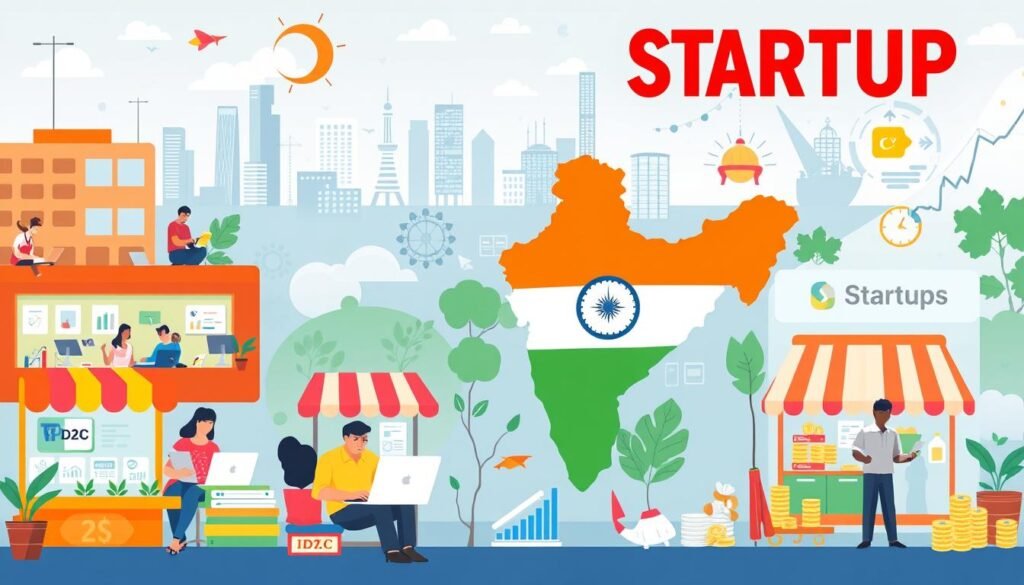Key Takeaways
- Understanding the D2C Business Model
- Identify Your Niche and Target Market
- Developing Your Product Strategy
- Building Your Brand Identity
- Defining Your Brand Personality
- Designing a Strong Logo and Visual Identity
- Building an E-commerce Website
- Marketing and Promotion Strategies
- Social Media Marketing
- Influencer Collaborations
- Order Processing and Inventory Management
- Last-Mile Delivery and Reverse Logistics
- startup business in india
- Legal and Regulatory Considerations
- Funding and Financial Planning
- What is a D2C brand?
- What are the benefits of the D2C approach?
- How do I identify my niche and target market for a D2C brand in India?
- What are the essential steps in developing a product strategy for a D2C brand?
- How do I build a strong brand identity for my D2C brand in India?
- What are the key considerations in setting up an online presence for a D2C brand in India?
- What are effective marketing and promotion strategies for D2C brands in India?
- How do I ensure efficient fulfillment and logistics operations for my D2C brand in India?
- What are the legal and regulatory considerations for starting a D2C brand in India?
- What are the funding and financial planning considerations for a D2C startup in India?
- Understand the advantages and key components of the D2C business model in India
- Identify a unique niche and target market for your D2C brand
- Develop a strategic product strategy and build a strong brand identity
- Leverage digital marketing and e-commerce platforms to reach your target audience
- Optimize logistics and fulfillment for efficient D2C operations
Understanding the D2C Business Model
The retail world is changing fast, and a new model is rising: the direct-to-consumer (D2C) approach. This new way lets brands connect directly with their customers, skipping traditional stores. But what is a D2C brand, and why is it good?
What is a D2C Brand?
A D2C brand sells directly to people, without middlemen like stores or wholesalers. This means they can control everything, from making the product to selling it.
Benefits of the D2C Approach
The advantages of the direct-to-consumer model are many, making it popular worldwide. In India, some big benefits of D2C business are:
- Deeper customer connections and loyalty through personal talks
- More money made from each sale because there’s no middleman
- Useful customer data for better products and marketing
- Quick changes to meet market and customer needs
- Control over the brand story and a consistent experience
Choosing the D2C business model helps brands connect more with customers. It opens up new ways to make money and stay ahead in India’s fast-changing retail scene.
“The D2C model allows us to have a direct relationship with our customers, which is crucial for understanding their needs and delivering a personalized experience.”
— Jane Doe, Founder of XYZ D2C Brand
Identify Your Niche and Target Market
Successful D2C brands in India start by finding a specific niche and target market. They do this by doing deep market research, looking at consumer trends, and creating an ideal customer persona. By matching your D2C offering with what your target audience wants, you can succeed in India’s competitive market.
To find your niche in the D2C industry in India, consider these steps:
- Analyze market data and industry trends to uncover underserved segments or emerging consumer demands.
- Evaluate your own expertise, resources, and unique value proposition to determine where you can excel.
- Conduct market research for D2C startups in India to identify your target customers’ pain points, preferences, and purchasing behavior.
- Create a detailed customer persona that outlines the demographic, psychographic, and behavioral characteristics of your ideal buyer.
By identifying the target market for your D2C brand in India, you can tailor your product development, marketing, and overall business strategy to meet the specific needs of your audience. This laser-focused approach can help you stand out in the crowded D2C landscape and build a loyal customer base.
“The riches are in the niches. The more specific you can be about your target audience, the more successful your D2C brand will be.”
Developing Your Product Strategy
To make a successful D2C brand in India, you need a solid product strategy. Start by doing deep product research and development. This helps you understand what your customers want. You can then make products that are unique and meet their needs.
Product Research and Development
First, study the competition, trends, and problems in your market. This research helps you come up with new and useful products. Make sure to invest in R&D to improve your prototypes and make them better.
Sourcing and Manufacturing
Finding good sourcing and manufacturing partnerships is key for D2C brands in India. Look for suppliers and manufacturers who offer high-quality products. Work closely with them to meet your brand’s standards and keep costs down.
| Key Considerations for Product Development | Best Practices for Sourcing and Manufacturing |
|---|---|
| Thorough market researchInnovative product ideationIterative design and prototypingQuality assurance and testing | Vet suppliers and manufacturers thoroughlyEstablish clear quality standards and KPIsMaintain open communication and collaborationExplore cost-effective and sustainable solutions |
By carefully planning your product strategy, doing product development for d2c brands in india, and finding reliable sourcing and manufacturing for d2c startups in india, you can make a strong D2C product. This product will attract your target market.
“The key to success in the D2C space is to obsess over your customer and their evolving needs, and then relentlessly innovate to meet those needs.”
Building Your Brand Identity
Creating a strong brand identity is key for D2C startups in India. It involves defining your brand’s unique personality and making a memorable logo. This guide will help you build a brand that connects with your audience.
Defining Your Brand Personality
Your brand’s personality is its core. It’s how you connect with customers, showing your values and character. Understand your market well and create a unique personality that stands out.
- Identify your brand’s core values and mission
- Determine your brand’s tone of voice (e.g., playful, sophisticated, inspiring)
- Create a brand persona that represents your ideal customer
Designing a Strong Logo and Visual Identity
Your logo and visuals are crucial for your brand’s identity. Create a design that’s memorable and reflects your brand’s personality. It should appeal to your target audience in India’s D2C market.
- Collaborate with a professional designer to create a unique, eye-catching logo
- Establish a consistent color palette and typography that reflects your brand
- Develop a cohesive set of visual elements, such as icons, illustrations, and imagery
Investing in your brand identity will help you stand out in India’s competitive D2C startup scene.
Setting Up Your Online Presence
In today’s digital world, having a strong online presence is key for D2C brands in India. Creating an e-commerce website is vital. It helps your brand stand out and boosts sales.
Building an E-commerce Website
Building an e-commerce website for D2C brands in India needs careful planning. Here are some important points to consider:
- Choose the right e-commerce platform: Pick one that fits your business needs. It should be easy to use and integrate well.
- Design an intuitive interface: Make your website look good and be easy to use. It should work well on mobile devices too.
- Incorporate essential features: Add things like product catalogs, secure payment options, customer reviews, and simple checkout. These make the customer journey on your D2C brand website smooth.
By focusing on essential features for D2C brand websites in India, you can make a website that attracts your audience. It will also help increase sales.
“Building a robust e-commerce website is the foundation for success in the digital-first world of D2C brands.”
Marketing and Promotion Strategies
Social media marketing and influencer collaborations are key for D2C brands in India. They help capture your target audience and drive growth. These tactics boost your brand’s visibility, connect with consumers, and increase conversions.
Social Media Marketing
Social media is at the heart of modern marketing. It offers D2C brands great chances to reach and engage customers. A strong social media presence, with great content and targeted ads, can grow your brand and attract new customers.
Use Instagram, Facebook, and Twitter to show off your products. Share your brand’s personality and build a loyal community.
Influencer Collaborations
Working with influencers can change the game for D2C brands in India. Partnering with influencers who match your target market can promote your products effectively. Choose influencers who share your brand’s values and create authentic content together.
This approach to influencer marketing boosts social media marketing for d2c brands in india and customer acquisition.
| Social Media Platform | Key Benefits for D2C Brands |
|---|---|
| Visually-driven platform to showcase products, build brand identity, and leverage influencer partnerships | |
| Targeted advertising and audience segmentation to reach and engage potential customers | |
| Real-time engagement, customer service, and brand storytelling |
By using a solid influencer marketing strategies for direct-to-consumer startups in india and social media plan, D2C brands in India can grow. They can connect with their audience and promote their business effectively.
Fulfillment and Logistics
Efficient fulfillment and logistics are key for D2C brands in India. They handle order processing, inventory, and last-mile delivery. Direct-to-consumer startups need strong supply chain management and order fulfillment strategies to succeed.
Order Processing and Inventory Management
Streamlining order fulfillment is vital for logistics and fulfillment for D2C brands in India. This means linking your e-commerce site with a reliable order system. It also means tracking inventory well and having efficient pick-pack-ship methods.
Investing in a central inventory system helps keep stock levels right. It reduces stockouts and ensures quick order fulfillment.
Last-Mile Delivery and Reverse Logistics
The last mile of delivery is crucial for your brand’s image. Working with skilled logistics providers for direct-to-consumer startups in India ensures on-time and reliable delivery. It also makes returns and exchanges easy for customers.
Keeping up with what customers want and trying new delivery methods can improve your order fulfillment strategies for D2C businesses in India.
| Key Considerations in Fulfillment and Logistics | Best Practices |
|---|---|
| Order Processing and Inventory Management | Integrate e-commerce platform with order management systemImplement centralized inventory tracking and controlOptimize pick-pack-ship procedures |
| Last-Mile Delivery and Reverse Logistics | Partner with experienced logistics providersOffer convenient return and exchange optionsExplore innovative delivery solutions |
“Efficient fulfillment and logistics operations are the keys to unlocking the full potential of D2C brands in India.”
startup business in india
India’s startup scene has grown a lot in recent years. It now offers many chances for new entrepreneurs, especially those starting direct-to-consumer (D2C) brands. The country is becoming a key place for innovation and starting businesses.
The growth of India’s consumer base and digital access are key drivers. More people have internet and smartphones, making them open to new products. This has helped D2C startups in India reach their audience directly.
The government has also helped a lot. Programs like Startup India offer funding, mentorship, and support. This has encouraged more people to start businesses. The government’s efforts in digital infrastructure and tech hubs make India even more appealing for entrepreneurs.
Starting a business in India comes with challenges, though. Entrepreneurs face tough rules, finding money, and setting up supply chains. But, there are many resources like incubators, accelerators, and investors to help.
The future looks good for entrepreneurs in India, especially those starting D2C brands. With the right plan, resources, and hard work, the next wave of Indian entrepreneurs can make a big impact.

“The biggest opportunity in India is the rapidly growing consumer base and their increasing appetite for innovative products and services.”
| Key Drivers of India’s Startup Ecosystem | Challenges for Entrepreneurs in India |
|---|---|
| Rapidly growing consumer baseWidespread adoption of digital technologiesGovernment initiatives like Startup India programDevelopment of tech hubs across the country | Navigating the regulatory landscapeSecuring adequate fundingBuilding a strong supply chain |
Legal and Regulatory Considerations
Starting a direct-to-consumer (D2C) brand in India means you must understand the legal rules. You need to register your business and get the right licenses and permits. There are key legal requirements for starting a D2C brand in India that you must follow.
Registering Your Business
The business registration process for direct-to-consumer startups in India has a few steps:
- Decide on a business type, like a sole proprietorship, partnership, or private limited company.
- Register with the Registrar of Companies (ROC) and get a Certificate of Incorporation.
- Apply for a Permanent Account Number (PAN) and Goods and Services Tax (GST) registration.
- Get the right industry-specific licenses, like a trade license or manufacturing license, based on your business.
Obtaining Necessary Licenses and Permits
Besides basic registration, D2C businesses in India need various licenses and permits to operate legally. These include:
- Food and Drug Administration (FDA) licenses for food or cosmetic products
- Pollution Control Board clearances for manufacturing or warehousing activities
- Shops and Establishments Act registration for retail and e-commerce operations
- Trademark registration to protect your brand identity
Keeping up with the latest legal requirements for starting a D2C brand in India is vital. It ensures your direct-to-consumer venture can thrive and last.
Funding and Financial Planning
Getting the right funding and planning your finances well are key for D2C brands in India to thrive. Entrepreneurs can choose from venture capital, angel investors, and government schemes. Each option has its own needs and perks.
For financial planning, budgeting and forecasting are vital. D2C business owners need to manage their costs, track income, and plan for the future. They should set aside money for product development, marketing, logistics, and running the business. This way, they can make smart choices and keep their business going strong.
Also, knowing about investment chances for D2C businesses in India can help them grow. Investors see the D2C model’s potential and offer funding and advice. By looking into these options and making a solid financial plan, D2C startups in India can aim for lasting success.
FAQ
What is a D2C brand?
A D2C brand sells directly to customers, skipping traditional stores and middlemen.
What are the benefits of the D2C approach?
D2C brands control the customer experience better. They make more profit and get valuable customer data.
How do I identify my niche and target market for a D2C brand in India?
To find your niche in India, do market research and understand consumer trends. Define your ideal customer to match your product with their needs.
What are the essential steps in developing a product strategy for a D2C brand?
For a D2C brand in India, start with market research and product design. Find reliable suppliers to ensure quality and uniqueness.
How do I build a strong brand identity for my D2C brand in India?
A strong brand identity is key in India’s competitive market. Define your brand’s personality and create a memorable logo. Make sure your messaging connects with your audience.
What are the key considerations in setting up an online presence for a D2C brand in India?
A strong online presence is vital for D2C brands in India. Build a user-friendly e-commerce site with the right features to improve the customer journey.
What are effective marketing and promotion strategies for D2C brands in India?
Use social media and influencer collaborations to reach and engage your audience. This drives customer acquisition for D2C brands in India.
How do I ensure efficient fulfillment and logistics operations for my D2C brand in India?
For success, focus on a reliable supply chain and efficient delivery. This ensures a smooth customer experience.
What are the legal and regulatory considerations for starting a D2C brand in India?
Understanding the legal and regulatory landscape is crucial. Register your business, get necessary licenses, and follow laws and regulations.
What are the funding and financial planning considerations for a D2C startup in India?
Getting the right funding and planning your finances are key for success. Explore funding options, budget, forecast, and manage your finances well.






